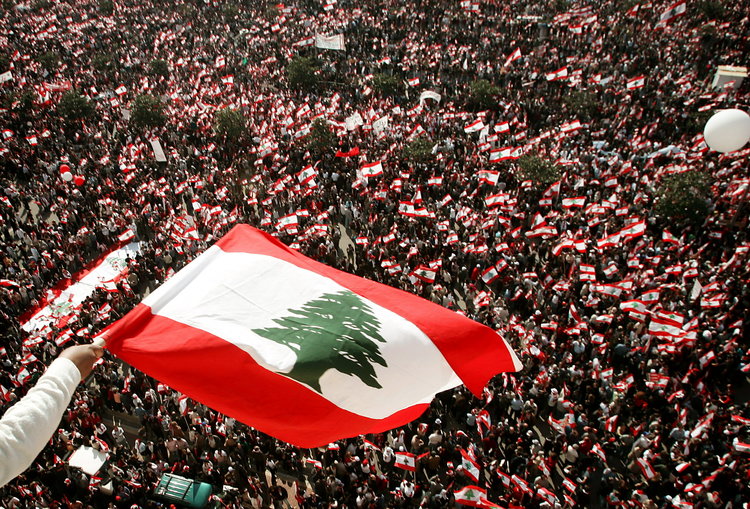Lebanon crisis
February 24, 2019 | Expert Insights

Hezbollah, an armed Shi’ite group backed by Iran, is expanding its influence in Lebanon. The increasing influence could prompt action from Israel or the West.
Background
Originally a part of the Ottoman Empire, Lebanon was established in 1920 after France was granted the mandate for Lebanon and Syria. France granted Lebanon independence in 1943. Lebanon was wracked by civil war from 1975 to 1990. Syria and Israel invaded the country during this period. Israel finally withdrew in 2000, and Syrian troops withdrew under international pressure in 2005. As of 2017, between 174,000 and 450,000 Palestinian refugees live in Lebanon with about half in refugee camps. Presently, there are over a million Syrian refugees too.
Lebanon is home to Hezbollah, the Iran-backed organisation which has been labelled as a terrorist organisation by the US. The Hezbollah is a legitimate political party in Lebanon and has won 70 seats in the most recent election, and has cabinet positions in the new government.
Lebanon was without a President between May 2014 and October 2016, and has formed a new government on January 31, ending months of wrangling and deadlock.
Analysis
Lebanon’s economy is faltering under the weight of mismanagement, debt, and Syrian/Palestinian refugees. Lebanon has been in an economic turmoil for years, with GDP growth running at a pitiful 1% to 2% annually since 2011. The war in Syria is the proximate cause and has hurt the banking and tourism industries that are the mainstay of the economy. It has also flooded Lebanon with as many as 1.5 million refugees – one for every four Lebanese, the highest per capita ratio in the world.
Debt has been piling up to an estimated 140% of GDP, the third-highest level in the world, and that doesn’t count the debt of state-owned entities. The high debts are due to large imports than exports. The rating agency politely describes Lebanon’s debt as “speculative” and ‘high risk. World Bank's October report noted some central bank tools were becoming less effective and that Lebanon's risk profile was rising sharply.
Lebanon’s new government, which took office at the end of January, has pledged to give top priority to the economy and take steps to reduce the budget deficit by one percentage point a year over the next five years. Last April, a group of donor nations agreed to provide $11.5 billion in aid, mostly in the form of loans, to help Lebanon, but made it conditional on economic reforms.
The pledge for change came from Prime Minister Saad Hariri, but his power to govern is subordinate to Hezbollah, which controls parliament. The military is also in the hands of Hezbollah, which has more firepower than the army and so are a lot of other state functions. Hezbollah continues to maintain a militia outside of the state’s control and makes its own national security decisions - “decisions that endanger the rest of the country.”
The new government, which for the first time has three Hezbollah ministers, adopted a policy of dissociation from regional conflicts. But the Iran-backed army violates this by participating in “armed conflict in at least three other countries,” - Iraq, Syria and Yemen.
The United States has tightened financial sanctions against Hezbollah, part of its wider effort to counter Iran. The US views Hezbollah as a terrorist group, but is a strong supporter of Lebanon’s national army, supplying it with arms worth hundreds of millions of dollars in recent years. The US ambassador to Lebanon expressed concerns over the Hezbollah terror group’s growing role in the new Cabinet, saying it does not contribute to stability. Israel is also displeased with the wide participation of Hezbollah in the new Lebanese government, saying it will enhance Iranian influence in the country.
Assessment
Our assessment is that Lebanon's politics has led to years of policy paralysis and obstructed reforms needed to stimulate investor confidence. It can be noted that Lebanon is a major benefactor of foreign aid, and the biggest donor by far is the United States. The presence of Hezbollah in Lebanon is likely to reduce aid from US, Saudi and international monetary institutions, crippling the already worn out economy.
Read more:
- Armed conflict in Middle East?
- Qatar to support Lebanese economy with $500m
- A win for Hezbollah?
- Lebanon's new government formed








Comments